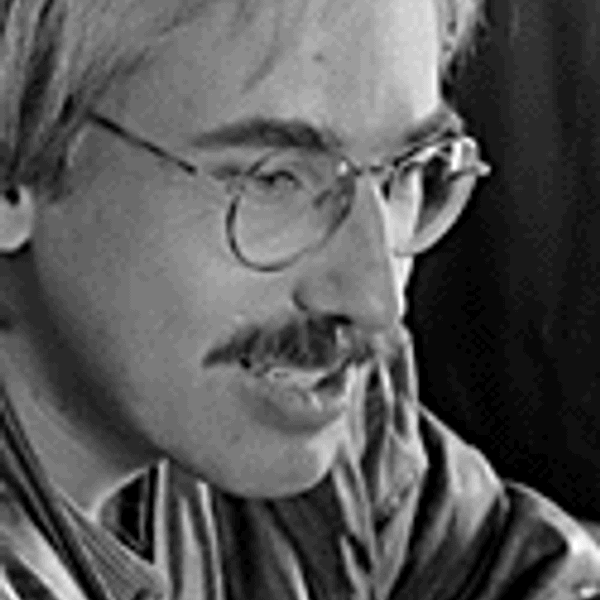Lia Purpura, Parasol Mushroom (detail), featured in AGNI 102
Where Is My Lariat?: The Poetry of John McKernan
In 1962 John McKernan was expelled from the pre-med program at Creighton University for, in his own words, “drinking and carousing.” Thank God. Until his expulsion, he had not read or studied a single poem. From Creighton, McKernan went on to the University of Omaha where he majored variously in History, Philosophy and English. He received a Graduate Fellowship to the University of Arkansas and did further work in creative writing at Columbia University. As if making up for time lost, he has been remarkably energetic in his pursuit of the craft. In addition to teaching, editing The Little Review and translating from the works of Rimbaud, Horace, Guillevic and Rilke, he has published several hundred poems in many of the best literary magazines in the country.
Perhaps the first thing one notices about McKernan’s poetry is his passion for places: New York, Illinois, Alabama, West Virginia, Alaska and Japan are just a few of the names appearing in the following pages. That is quite an area to cover. But the poet is not straining to somehow encompass the world, nor is he making any grandiose claims to universality. He is of a specific time, of a particular place, and he knows it. Often this awareness is painful and frustrating, as evident in the poem ingenuously titled “Shucks.” Here, the poet’s personal attempt to bridge the gap between Eastern and Western Cultures ends in failure: “But always mid-west/Tornadoes slam through/My veins….” Although we can try physically to escape, or bury, our past, we cannot be other than what we are.
On the other hand, we are often not what we appear. McKernan has a pronounced affection for the whimsical—some of his titles are almost poems themselves. Many of his personae assume a voice of disarming simplicity. How does one respond to a poem that concludes: “I am/From Denver. Up in the sky. Simple. I/Would just die to talk to Susan one day.”? Well, having read the poems that precede it, the reader does not fully believe him. However, while this “simple I” is only one of the poet’s poses, it would be wrong to divide the poems into the serious and the not-so-serious. McKernan is not as accommodating as that. The light and the serious (in fashionable terms, one would call it the poet’s darker side) generally blend together, like two parts of an integrated personality. Thus the final poem included here has the most farcical title and the most morbid last lines; conversely, “Where is My Lariat?” begins despairingly and moves to an unexpectedly playful conclusion.
It would be too easy to say that McKernan’s poems are refreshing, witty, complex and original. These are characteristics one takes for granted in all poets of his caliber. But a love poem (which is of course more than a love poem) as fine as “The Only Known Road Map of the Alaskan Islands” is almost too much to expect from anyone.

Askold Melnyczuk
Askold Melnyczuk—the founding editor of AGNI, for which he received the PEN/Nora Magid Award for Magazine Editing—is the author of four novels and a book of stories. What Is Told (Faber, 1994), was the first commercially published work of fiction in English to highlight the Ukrainian refugee experience and was named a New York Times Notable. Other novels have been selected as a Los Angeles Times Best Book of the Year and an Editor’s Choice by the American Library Association’s Booklist. His most recent book is a collection of stories, The Man Who Would Not Bow. His selected poems, The Venus of Odesa, is forthcoming from Mad Hat in summer 2025. A book of selected nonfiction, With Madonna in Kyiv: Why Literature Still Matters (More than Ever), will be published by Harvard University Press in 2026. He has edited a book of essays on the St. Lucian Nobel Prize–winning poet Derek Walcott and is coeditor of From Three Worlds, an anthology of Ukrainian writers from the 1980s generation. He’s the recipient of a Lila Wallace-Reader’s Digest Writers Award for fiction, the Heldt Prize for translation, and the George Garret Award from AWP for his work in the literary community. Individual poems, stories, essays, and translations have appeared in The New Yorker, The Paris Review, The Gettysburg Review, The Missouri Review, and elsewhere. Also the founder of Arrowsmith Press, he has taught at Boston University, Harvard, and Bennington College and currently teaches at the University of Massachusetts Boston. (updated 5/2025)
